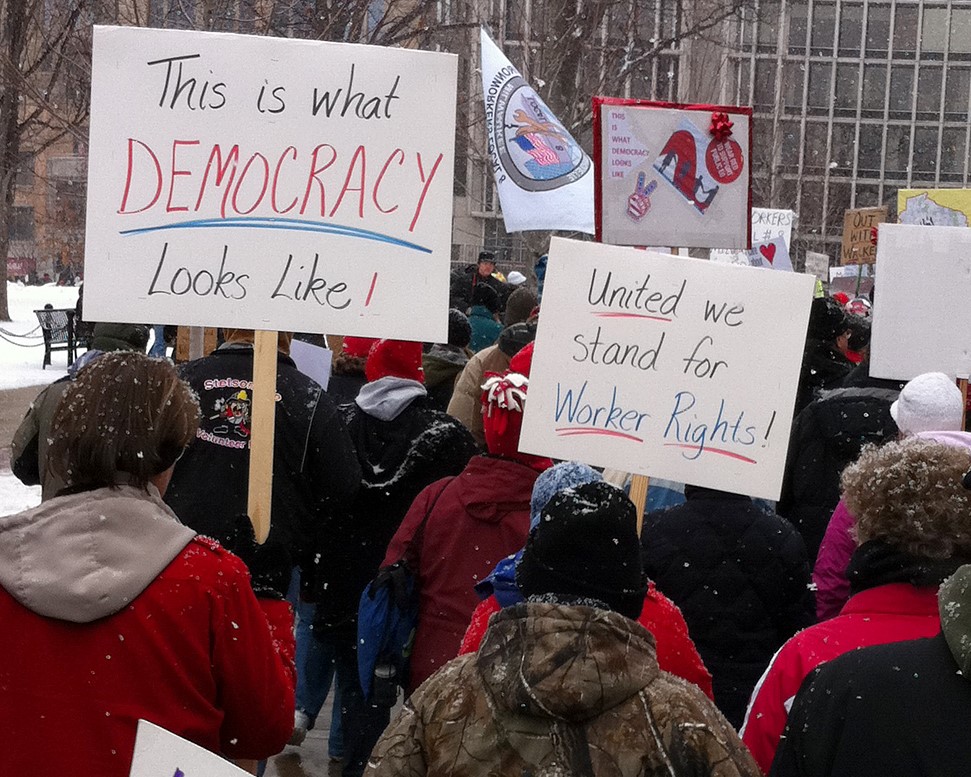
August 30, 2023
Labor Protections Must Be Protected
by Senator Jeff Smith
For Americans, Labor Day has come to signify the end of summer, but the Labor Day holiday is meant to honor and recognize the essential role workers have played in our nation’s history.
Prior to the 1930s, labor conditions were dire. Muckraking journalists like William B. Hard and Upton Sinclair wrote shocking exposés of workers killed and maimed on the job. The resulting groundswell of outrage led to action, and in 1911 Wisconsin became the first state with a successful workers’ compensation program, with most states soon following suit.
In 1935, Congress passed the National Labor Relations Act (NLRA), which gave workers the right to form unions and required employers to bargain collectively with those unions on issues of pay, hours and other conditions of employment.
1935 was also the year John L. Lewis founded the Committee for Industrial Organization (CIO), which later became the Congress of Industrial Organizations. The CIO became the umbrella organization for the United Auto Workers and United Steelworkers of America and eventually merged with the American Federation of Labor to become the AFL-CIO.
Three years later, labor unions succeeded in advocating for the Fair Labor Standards Act of 1938 (FLSA), which set the first federal minimum wage, banned child labor, required overtime pay and set the eight-hour work day.
During World War II, labor unions pledged not to strike for the duration of the war. With wages frozen during the war effort, workers were instead afforded other benefits such as paid vacation, cost-of-living allowances, employer-paid health plans and grievance arbitration.
After the war, when employers attempted to turn the clock back on these benefits, unions organized strikes to protect their hard-won gains. Once new benefits became a staple of union contracts, even nonunion employers were obliged to include them to stay competitive in recruiting workers.
Through the decades, labor unions continued to fight. In 1964, labor unions pushed to add Title VII to the Civil Rights Act, banning employees and applicants from employment discrimination based on race, color, religion, sex or national origin.
In January of 1968, President Lyndon Johnson called it the “shame of a modern industrial nation” that despite these hard-fought protections, each year over 14,000 workers were killed and 2.2 million injured on the job. The patchwork of state law was not enough – federal action was needed.
While Johnson did not get this proposal through during his presidency, President Richard Nixon (not the biggest fan of unions himself) nevertheless helped pass the Occupational Safety and Health Act (OSHA) of 1970. OSHA set safety and health standards and provided training and enforcement to back up those standards.
Child labor protections, safety standards and collective bargaining are all important protections that have helped ensure the well-being of workers. But to this day, there are forces that work against these protections in the guise of free market capitalism.
This session, Republican legislators introduced a bill to allow children as young as 14 to serve alcohol in bars and restaurants (current law says you have to be 18). If passed, Wisconsin would have the lowest such limit nationwide. Underage access to alcohol is nothing to be cavalier about, and I question the safety of such a proposal.
Republican legislators have also circulated a bill to remove the requirement that 14- and 15-year-olds get work permits – a measure put in place to ensure students remember their first job is to excel in the classroom.
They couch these provisions as ways to address workplace staffing issues, but in reality it’s part of Republicans’ long fight to peel back protections for workers and allow businesses to pay their employees less.
Our children are the future of our economy. We should be encouraging them to apply themselves in the classroom before entering the workforce so that they can build the skills they need to be prepared for their careers.
The long road to a safer workplace is an inspiring story, but we’re not done yet. Labor Day reminds us there are still victories to win. We can’t let worker protections fall by the wayside, especially when it comes to our children.
Photo credit: Lena on Flickr


